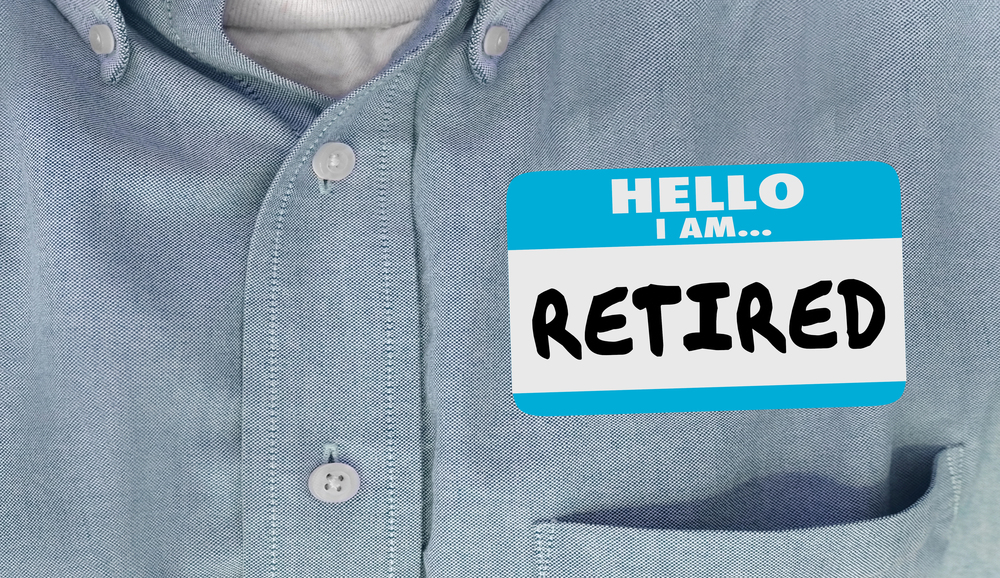Retirement for the introvert: What to do with your time after you retire

Have you ever thought about how retirement life is for those who love being alone? Moving from a busy workday to endless freedom is different for everyone. But for introverts, it's even more special.
Introverts often find work a daily battle against social expectations. When they retire, they feel both relieved and unsure about what to do next.
Introverts need a lot of alone time to feel refreshed. But they also need some human connection. Regular social interactions are key for staying healthy, even if it's just a little bit.
The big challenge for introverted retirees is finding a balance. They need quiet time but also can't be too alone. Finding this balance helps them enjoy their retirement fully and spend time in ways that feel right.
If you prefer, you can listen to a "podcast style" version of this blog post:
Understanding Introversion in Retirement Life
Retirement is a big change for introverts. It means less stress from work but also figuring out how to connect with others. It's important to find a balance between being alone and being social.
Introversion is more than just liking to be alone. It's how you handle the world and recharge. In retirement, embracing this can make your life more fulfilling and true to who you are.
The Difference Between Introversion and Social Anxiety
Being an introvert is not the same as being shy or anxious around people. When you say, "I'm an introvert," you're talking about how you handle energy, not fear of people.
Introverts can be great at socializing and making connections. But, they need alone time to recharge. Social anxiety, on the other hand, is about fear of being judged, not about being introverted.
Introverts don't need to be alone because they're antisocial. They need it to stay well and enjoy their connections.
How Retirement Shifts Daily Interactions for Introverts
Work gives introverts a routine for socializing. But, retirement means no more of that. This can be both freeing and scary.
At first, many introverts feel relieved from work's social pressure. But, they miss the social connections work provided. Without these, they might feel isolated if they don't plan well.

Now, you decide when and how to be social. This lets you choose activities that fit your introverted nature. You can pick smaller gatherings and have time to recover after being social.
Finding the right balance is key. Introverts might not want to fill their calendars like extroverts do. They prefer a more careful approach to socializing.
Introverts' social needs can change with retirement. They might want more certain types of connections but still need alone time. It's okay to be selective about social activities.
Retirement doesn't mean you have to be more outgoing. It's a chance to live in a way that truly reflects your introverted nature. This might mean fewer but deeper friendships and more time for yourself.
Challenges Introverts May Face After Leaving Work
Introverts stepping into retirement may face new challenges. Unlike extroverts, they might find retirement not as relaxing as expected. The transition can be tough, with old routines gone and new ones to learn.
Introverts often found comfort in the structured workday. It balanced social time with alone time. Without this, they must find new ways to stay happy and healthy.
When Structured Alone Time Disappears
Work gave introverts regular alone time. Even in team settings, they had tasks that needed focus. This alone time was crucial for their energy.
A retired accountant said, "At work, I could close my office door for hours to focus on spreadsheets. Everyone respected that time as productive. Now that I'm home, family members don't understand why I need to be alone when I'm 'not doing anything important.'"
Without work, introverts struggle to find alone time. The lines between work and social time blur. This can lead to feeling overwhelmed and worried about personal space.
Managing Others' Expectations for Social Engagement
Friends and family expect retired people to be more social. Introverts might feel pressured to go to more social events than they want. Loved ones might see saying no as a sign of rejection.
Introverts often face pressure to babysit, attend community events, or join clubs. Extroverted family members might think more socializing means more happiness.
A retired teacher said, "My extroverted sister keeps trying to drag me to her book club, exercise class, and neighborhood potlucks. She thinks I'm isolating myself, but I'm actually enjoying my quiet time. I've had to repeatedly explain that I don't need to be in a crowd to feel fulfilled."
Close friends who are still working might not get what introverts want in retirement. They might think retirement means constant socializing, not understanding the need for alone time.
Finding Purpose Without the Workplace Environment
Work gave introverts a sense of purpose and identity. It offered clear goals and achievements without needing to network. The work environment set boundaries that made socializing easier.
Without work, finding meaningful activities is hard for introverts. Things that energize extroverts, like volunteering or group classes, can exhaust introverts.
Introverts need to find activities that respect their need for quiet. They shouldn't feel forced into activities that don't fit their personality.
"I tried joining the senior center because that's what retirees are 'supposed to do,'" said a retired engineer. "But the constant chatter and group activities left me drained. I've realized I need to find purpose in ways that honor my need for quiet reflection, not fight against it."
Introverts can thrive in retirement with the right approach. It's about creating a retirement that respects their needs, not just follows what others expect.
What Do Introverts Do When They Retire?
Retirement gives introverts the chance to live life on their own terms. They can create a truly fulfilling life that suits their needs. The pandemic showed that staying home can be better than being out all the time.
Now, they need to find the right balance between alone time and connecting with others.
Creating a Balanced Daily Schedule That Respects Your Need to Recharge
Introverts do best when they know what to expect. They need time to recharge. Morning routines are key to setting a good tone for the day.
Starting the day quietly, like journaling or meditating, helps. It prepares them for more social moments later. It's not about being lonely; it's about respecting their energy.
Schedule social activities when you have the most energy. For many, this is late morning or early afternoon. Make sure to have time to recover after socializing.
A good daily schedule for introverts might include:
- 6-8 AM: Quiet morning routine (reading, reflection)
- 8-10 AM: Productive solo activity (hobby project, exercise)
- 10 AM-12 PM: Limited social engagement (coffee with a friend, class)
- 12-2 PM: Lunch and recharge time
- 2-4 PM: Creative or learning pursuit
- 4-6 PM: Household tasks or gentle exercise
- 6-9 PM: Dinner and relaxation (possibly with partner or small group)
Be consistent but flexible. A predictable routine reduces stress. Adjusting to your energy levels is key to honoring your introvert nature.
Setting Boundaries with Family, Grandkids, and Friends
Managing others' expectations can be tough for introverts in retirement. Family might think you're available all the time.
Setting boundaries is not about rejecting people. It's about protecting your energy. Be honest about your needs using "I" statements.
For example, say, "I feel overwhelmed without preparing for visitors. Let's plan visits a few days in advance."
With grandkids, have a set visiting schedule. This helps you prepare and recover. Say, "I love spending time with the grandkids. Tuesday afternoons and Saturday mornings work best for me."
Remember, retirement doesn't mean you're always available. Protecting your time is important for your well-being.

Designing an Introvert-Friendly Living Space
Your living space affects your energy levels. Clutter or bright colors can drain you. Creating a supportive home environment is crucial, whether you live alone or spend more time at home.
Designate a sanctuary space for yourself. It could be a reading nook or a craft room. Make sure it's comfortable and minimally stimulating.
Think about how each room affects you. Introverts often find that their environment greatly impacts their energy:
| Element | Energizing for Introverts | Potentially Draining | Practical Solutions |
|---|---|---|---|
| Lighting | Natural, soft, indirect | Harsh, fluorescent, overly bright | Dimmable lamps, curtains that filter light |
| Color Scheme | Blues, greens, neutrals | Bright reds, oranges, busy patterns | Paint walls in calming colors, use bright accents sparingly |
| Sound | Natural sounds, controlled quiet | Unpredictable noise, constant background TV | Sound-dampening curtains, white noise machines |
| Organization | Thoughtful minimalism, hidden storage | Visible clutter, excessive decorations | Regular decluttering sessions, closed storage solutions |
| Layout | Defined spaces with purpose | Open concept with no retreat areas | Room dividers, furniture arrangement creating nooks |
The pandemic showed introverts the importance of their home environment. With more time at home, the impact of your surroundings grows. Creating separate zones for different activities helps maintain mental clarity.
Your home should reflect your true self, not others' expectations. If you prefer a cozy chair to a big dining table, that's okay. Your retirement home should support your introverted nature.
Solo Activities That Energize Introverted Retirees
Retirement is a great time for introverts to explore hobbies that they enjoy alone. Unlike extroverts who love being around people, introverts find joy in quiet activities. These hobbies help them grow and enjoy their retirement in their own way.
Creative Pursuits and Hobbies That Provide Fulfillment
Introverts can express themselves through creative activities without feeling overwhelmed. Many find that hobbies like art and writing bring them happiness and a sense of achievement.
Writing is a favorite hobby for many introverts. It lets them reflect deeply and share their thoughts in a way that feels comfortable. The beauty of writing lies in its flexibility—you can share your work or keep it private, as you prefer.
Visual arts like painting and photography also offer great benefits. They allow introverts to express their feelings through images. Focusing on details can be very calming and meditative.
Crafting hobbies like knitting and woodworking are great for introverts. They engage both the mind and hands, providing a sense of accomplishment. Plus, they can spark interesting conversations when you do socialize.
Gardening is a creative hobby that connects you with nature. It's perfect for introverts who enjoy quiet time. Gardening teaches patience and adds structure to your days.
Learning and Personal Development Opportunities
Retirement is a chance for introverts to explore new interests. Without work, you can learn for the joy of it, without feeling stressed.
Online courses are perfect for introverts. Sites like Coursera and MasterClass let you learn at your own pace. The self-paced nature of these programs perfectly suits the introvert's preference for thorough learning.
Reading is a great hobby for introverts. It offers companionship without the need to interact. Joining a digital book club can be a fun way to discuss books without feeling overwhelmed.
Learning a musical instrument is great for both your mind and emotions. The quiet practice fits well with an introvert's focus. Piano, guitar, and ukulele are good for beginners, but any instrument can be rewarding.
Learning a new language is mentally stimulating and can structure your days. Apps like Duolingo make it easy to learn at your own pace. Occasional practice with a tutor can help build social skills.
Nature and Outdoor Solitary Activities for Reflection
Nature is perfect for introverts who need quiet time. Outdoor activities offer physical and mental benefits without the need for social interaction.
Hiking and walking trails are great for movement and fresh air. They allow for quiet reflection and can spark creativity. Many introverts report that their best ideas come during solitary walks, when they can think freely.
Birdwatching is a hobby that rewards patience and attention to detail. It's calming and can help you focus. Spotting different birds can be very fulfilling.
Fishing is a hobby that combines skill with quiet time. It's calming and allows for deep reflection. Catching a fish adds a sense of achievement.
Stargazing connects you to the universe without needing to be around people. Learning about constellations and watching the stars can be very satisfying for those who enjoy quiet contemplation.
| Solo Activity | Benefits for Introverts | Equipment Needed | Time Commitment |
|---|---|---|---|
| Journal Writing | Self-reflection, emotional processing | Notebook, pen or digital device | 15-30 minutes daily |
| Photography | Mindful observation, creative expression | Camera (even smartphone) | Flexible, 1-3 hours per session |
| Gardening | Connection to nature, tangible results | Basic tools, plants, growing space | Seasonal, 2-10 hours weekly |
| Online Learning | Intellectual stimulation, self-paced | Computer with internet access | 3-5 hours weekly per course |
| Hiking | Physical activity, mental clarity | Comfortable shoes, weather-appropriate clothing | 2-4 hours per outing |
These solo activities are not about being alone; they're about respecting your energy. Introverts often find they're more ready to socialize after enjoying alone time. The goal is to find activities that energize you, making your retirement fulfilling and true to your introverted nature.
Social Engagement on an Introvert's Terms
Retirement is a great time for introverts to set their own social pace. Solitude can recharge you, but it's also important to connect with others. The goal is to find social activities that energize you, not drain you.
Introverts can be more picky about who they spend time with in retirement. This means focusing on meaningful interactions rather than just going to work events. These deeper connections can be more rewarding than those made during work hours.
Finding Small Group Interactions That Don't Drain Your Energy
Introverts often prefer smaller, more intimate gatherings. These settings allow for deeper conversations without feeling overwhelmed by crowds.
Book clubs are a great example of introvert-friendly socializing. They offer structured conversations and focus on literature, which suits many introverts. Hobby groups, like gardening or bird watching, also provide opportunities for connection without constant talking.

Discussion circles on topics you love can be both intellectually stimulating and socially engaging. These groups meet regularly but not too often, giving you time to recharge.
When looking for small group interactions, consider:
- Groups with clear agendas or activities rather than purely social gatherings
- Settings with 4-8 participants where everyone can meaningfully contribute
- Regular but not too frequent meetings (monthly often works well)
- Environments with minimal background noise and comfortable seating arrangements
Volunteering Opportunities That Suit Introverted Personalities
Volunteering is a great way for introverts to engage with others while feeling purposeful. The key is to find roles that fit your natural inclination for focused work.
Introverted retirees often prefer behind-the-scenes roles. Consider working in a museum, managing databases, or helping in a community kitchen. These jobs allow you to contribute while keeping social interactions to a minimum.
Mentoring one-on-one can also be rewarding. Whether tutoring, guiding new immigrants, or coaching entrepreneurs, these roles offer depth without the exhaustion of group settings. The focused nature of mentoring can be energizing for introverts.
Working in environmental conservation combines nature's restorative power with purposeful activity. Tasks like stream monitoring or wildlife surveys offer opportunities to work with others while having natural breaks in conversation.
| Volunteer Role | Introvert-Friendly Features | Social Engagement Level | Skill Requirements |
|---|---|---|---|
| Library Assistant | Quiet environment, task-focused | Low to moderate | Organization, attention to detail |
| Online Crisis Counselor | Text-based communication, home setting | Moderate (but controlled) | Empathy, written communication |
| Museum Docent | Scripted interactions, knowledge-sharing | Moderate | Subject expertise, public speaking |
| Community Garden Volunteer | Nature-based, parallel activities | Low to moderate | Basic gardening knowledge |
| Grant Writer | Independent work, minimal meetings | Very low | Research, writing abilities |
Building Meaningful Connections with Like-Minded Retirees
Introverts often seek deep friendships in retirement rather than a wide network. Finding people who respect your need for space can greatly enhance your social experience.
Look for friends who share your energy levels and communication style. Introverts often make great companions because they value comfortable silence. Thoughtful extroverts who respect boundaries can also be wonderful friends.
Regular time with the same people can reduce social anxiety. Whether it's weekly coffee or monthly dinners, these routines help you relax and deepen your connections. This predictability allows you to enjoy the relationship without feeling drained.
Shared interests make conversations easier and more enjoyable. Whether discussing books or exploring nature, shared activities take the spotlight off social performance.
Remember, meaningful connections don't always need to be in person. For many introverted retirees, staying in touch through letters, emails, or video calls is fulfilling. This approach provides the distance and time needed to process interactions.
The most fulfilling social lives for introverted retirees often focus on:
- Quality over quantity in relationships
- Intentional planning rather than spontaneous gatherings
- Depth of connection rather than breadth of network
- Clear beginnings and endings to social events
- Ample recovery time between engagements
By following these principles, you can create a retirement social life that energizes you. Your introverted approach to relationships—selective, purposeful, and depth-oriented—isn't just acceptable but often leads to more meaningful connections.
Finding Balance Between Solitude and Connection
For introverted retirees, finding the right balance between alone time and socializing is key. Retirement lets you plan your social life, but it's up to you to find what works best. Many introverts find their need for quiet time doesn't change, even when their daily routine does.
The aim isn't to become more outgoing in retirement. It's about respecting your need for quiet while still connecting with others. This balance can change over time, but listening to your body and mind is crucial.
Recognizing When You Need to Step Back and Recharge
Your body and mind will tell you when you've had enough socializing. Learning to listen to these signs is important for your well-being. You might feel tired, have headaches, or feel tense in your shoulders and neck when you need time alone.
Emotional signs are also important. Feeling annoyed or judgmental when you're usually happy can mean you're tired. Some introverts feel anxious or foggy when they've had too much socializing.
Behavioral changes can also signal you need some quiet time. These might include:
- Difficulty concentrating on conversations
- Finding yourself physically backing away from people
- Checking the time repeatedly during social events
- Fantasizing about canceling upcoming commitments
- Seeking quiet corners at gatherings
Seeing these signs as weaknesses is not helpful. They are important clues about what you need. Just like hunger tells you to eat, these signs tell you it's time to rest.
Strategies for Managing Social Exhaustion in Retirement
When you're feeling drained from being around people, having ways to recharge is crucial. Create personal rituals that help you relax after social events. These could be reading, taking a walk, or enjoying a hobby that requires focus.
Having buffer days between social events can help prevent exhaustion. For example, if you go to a community event on Saturday, keep Sunday for yourself. This is important before and after big events like family gatherings or travel.
Using "social sprints" can be helpful for many introverts. Instead of long, tiring events, choose shorter, more focused interactions. A two-hour lunch with friends might refresh you, but a day-long event in a crowd might leave you drained for days.
When you can't avoid long social events, use energy-saving strategies. Take short breaks, stay at the edge of a small group, or listen more than you talk. These can help you conserve energy.
Explaining Your Introverted Tendencies to Extroverted Friends and Family
Explaining your introversion to others can be tough. Start by seeing it as a normal personality trait, not a flaw. You might say, "I recharge through quiet time, just as you energize by being with people—we're just wired differently."
When you can't go to an event, be honest but positive. Say something like, "I'd love to meet new people, but I've reached my social limit this week. Could we plan something for next Tuesday instead?" This shows you value the invitation while respecting your limits.
For family who might see your need for quiet as a personal rejection, education can help. Share articles or books about introversion, or use examples they can understand. Explain that your social energy is like a phone battery that drains quickly. You need to recharge to be your best self with them.
Compromise can also help understanding. If your extroverted spouse wants to host many gatherings, find ways to compromise. You might have a quiet space in your home, agree on a signal for breaks, or plan activities that are less draining.
Most relationship issues around introversion come from misunderstanding, not incompatibility. As one retired introvert named Susan shared, "Once my family understood I wasn't rejecting them but simply recharging, they became my biggest supporters in finding balance."
Finding the right balance between connection and solitude is an ongoing journey. It may change with seasons, health, and life events. Be kind to yourself as you navigate this part of retirement. The goal is a fulfilling life that respects both your need for connection and your introvert's need for quiet.
Conclusion: Embracing Your Introverted Retirement Journey
Retirement is a chance to live life your way. For introverts, it means having space to recharge. This space is key to feeling refreshed and connected.
Being alone or enjoying quiet time doesn't mean you're isolated. Many retirees find joy in being true to themselves. The pandemic showed us how vital personal space and self-care are.
Susan, a retired teacher, used to push herself too hard. Now, she plans her social activities carefully. "I love spending time with my grandkids, but I also need time to myself. My retirement might seem quiet, but it's full of activities that make me feel alive."
Your need for alone time is a strength, not a weakness. It lets you think deeply, be creative, and connect on a personal level. The goal is to find a balance. You want enough social time to feel connected, but also enough alone time to recharge.
As you move forward, remember to live retirement on your terms. By embracing your introverted side and staying engaged, you'll have a retirement that feels right and fulfilling.
Additional Resources for "Retirement for the Introvert"
Books and Publications
- "Quiet: The Power of Introverts in a World That Can't Stop Talking" by Susan Cain
This groundbreaking book explores how society undervalues introverts and shows what we lose in doing so. Cain draws on cutting-edge research in psychology and neuroscience to reveal the surprising advantages of being an introvert in various life stages, including retirement.
Amazon - "The Introvert Advantage: How Quiet People Can Thrive in an Extrovert World" by Marti Olsen Laney
Laney's research shows how introverts process information differently and offers practical strategies for managing energy levels and social interactions. Her work is particularly relevant to retirees adjusting to new social dynamics.
Amazon - "Psychological Effects of the Transition to Retirement" by John W. Osborne
This scholarly article examines how personality types (including introversion) influence retirement adjustment and satisfaction. It emphasizes the importance of psychological preparation alongside financial planning.
ERIC
Scientific Research and Studies
- "Experiences of Solitude in Adulthood and Old Age" (2022)
This research found that older adults experience solitude more positively than younger adults, with higher subjective well-being and self-esteem during alone time.
PubMed Central - "Happy Alone? Motivational Profiles of Solitude and Well-Being in Older Adults" (2022)
This study examines how different motivations for seeking solitude affect well-being in retirement, finding that intentional solitude can be beneficial rather than harmful.
SAGE Journals
- "Experiences of Solitude in Adulthood and Old Age" (2022)
Online Resources
- "The Science Behind Why Introverts Need Alone Time" by Introvert, Dear
Drawing on Marti Olsen Laney's research, this article explains the neurological reasons why introverts require solitude to recharge, particularly relevant for retirees managing their social calendars.
Introvert, Dear - "Periods of Solitude Help Older Adults Recharge After Socialising" - British Psychological Society
This article highlights research showing that older adults benefit from alternating between social activities and periods of solitude, creating a healthy rhythm in retirement.
British Psychological Society - "Yes, Introverts Can Thrive in Senior Living Communities – Here's How"
This resource provides practical tips for introverted retirees navigating community living while honoring their need for quiet reflection.
Hebrew Senior Life
Practical Resources for Introverted Retirees
- "Activities That Introverted Seniors Can Enjoy While Aging in Place"
A compilation of activities aligned with introverted preferences, focusing on meaningful solo pursuits that promote well-being in retirement.
Institute on Aging - "Introverts Who Thrive During Retirement Often Adopt These 8 Daily Habits"
Based on psychological insights, this article outlines practical habits that help introverted retirees create fulfilling routines that honor their need for solitude while maintaining connection.
GE Editing - "How to Set Boundaries as an Introvert and Still Be Kind"
This resource provides specific language and techniques for setting social boundaries in retirement without damaging relationships—a crucial skill for introverted retirees.
Introvert, Dear
Podcasts and Multimedia Resources
- "The Benefits of Solitude" - American Psychological Association Podcast
This podcast discusses scientific research on how solitude can reduce anxiety, stress, and anger when approached intentionally.
American Psychological Association - "The Power of Introverts" - Susan Cain's TED Talk
In this influential talk, Susan Cain argues that introverts bring extraordinary talents to the world when given the space to flourish—a message particularly relevant for retirees redefining their contributions.
TED



